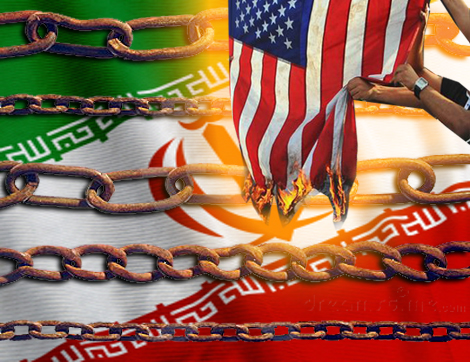
Harsh U.S.-sponsored sanctions against Iran punish the people, create enmity against West
By Pete Papaherakles
The international sanctions levied on Iran under the orchestration of the United States were supposed to help bring down the Iranian government and stop it from pursuing nuclear weapons. Instead, the sanctions are victimizing the Iranian people, making them more nationalistic and anti-American.
The recent history of such American-orchestrated sanctions imposed on other countries is an ugly one.
When Madeleine Albright—then U.S. ambassador to the United Nations—was asked in 1996 on “60 Minutes” if the deaths of some 500K Iraqi children resulting from the brutal sanctions the UN placed on Iraq in 1990 (and which were still in force) was worth it, she answered coldly, “We think the price is worth it.”
After being vanquished by the American invasion in 1990 and crippled with these sanctions that continued until Iraq was completely destroyed in 2003 following the second American-led assault—a war staged on the basis of false claims by the United States and Israel that Iraq possessed “weapons of mass destruction”—well over a million innocent Iraqi lives were added to Albright’s “price” list.
Today, we are seeing the same pattern of oppression unfolding against Iran, a country almost four times larger than Iraq.
The sanctions imposed upon Iran by the National Defense Authorization Act (NDAA)—signed into law by President Barack Obama last New Year’s Eve—have started to impact upon the Persian republic.
Section 1245 of the NDAA imposes unilateral sanctions against the Central Bank of Iran (CBI), effectively blocking Iranian oil exports to countries that do business with the United States. Oil exports provide half of Iran’s government revenues, while crude oil and its derivatives, account for nearly 80% of Iran’s total exports. Since the sanctions specifically target CBI, all financial transactions with Iran are affected.
The stated reason for the sanctions is Iran’s uranium enrichment program. However, Iran—which is pursuing peaceful nuclear energy and undergoes periodic inspections—has been in compliance with all relevant international regulations.
Contrast this with Israel, which—while officially denying it has access to nuclear weapons—is believed to have as many as 300-500 nuclear weapons (standing as perhaps the world’s fifth largest nuclear power) and yet refuses to sign the Treaty on the Non-Proliferation of Nuclear Weapons or permit international inspection of its nuclear arsenal.
Ironically, although both U.S. and Israeli intelligence agencies have consistently found Iran has not made a decision to pursue nuclear weapons and would need years to achieve this goal if such a decision was ever made, American and Israeli advocates of sanctions and military strikes against Iran have succeeded in manipulating the media and public opinion into creating the hysteria of a purported “Iranian nuclear threat.”
Although the sanctions are claimed to be peaceful measures designed to bring about regime change by the Iranian people, the opposite is happening.
Reza Saiedi, an Iranian-American writer, told AMERICAN FREE PRESS: “The sanctions are causing Iranians to become more nationalistic and resentful toward the West. The people are actually urging the government to pursue nuclear weapons, as they feel targeted for destruction.”
In reality, the people of Iran—not the government—are the chief victims. Prices for basic foods have soared, in some cases showing three and four-fold increases. Poultry, a staple in Persian cuisine, has more than doubled since last year causing what has been dubbed a “chicken crisis” and prompting demonstrations.
A lack of medicines has also become a big problem affecting up to 6M patients. Skyrocketing costs of both domestic and imported medicines as well as sanction restrictions have made things very difficult for Iranian doctors. A report by The Financial Times found that “cancer patients and those treated for complex disorders such as hemophilia, multiple sclerosis . . . as well as transplant and kidney dialysis patients” are dying because of the sanctions.
Even Iranian-Americans are affected by the sanctions. Saiedi cited a poll that showed 44% of respondents have been harmed in various ways: “Companies have refused to sell goods and services to [Iranians living in the U.S.] even when permitted by law. Banks have refused to open checking and savings accounts and employers have required background checks and approval from the Treasury Department. Others have become targets of federal prosecutions and investigations for sending donations to assist impoverished children and family members in Iran.”
With all the suffering inflicted on the Iranian people it is difficult to see how sanctions are worth it for American interests.
“The sanctions have actually served to make Iranians more self-sufficient and more determined to fight for their beliefs” said Saiedi. “One of Iran’s greatest religious heroes is Imam Hussein, Mohamed’s grandson, who with 72 men fought and died against an enemy 10,000 men strong. Every Iranian today feels the same way. No matter what happens with the West, Iranians are ready to fight until the end for their country.”
Peter Papaherakles, a U.S. citizen since 1986, was born in Greece. He is AFP’s outreach director. If you would like to see AFP speakers at your rally, contact Pete at 202-544-5977.




